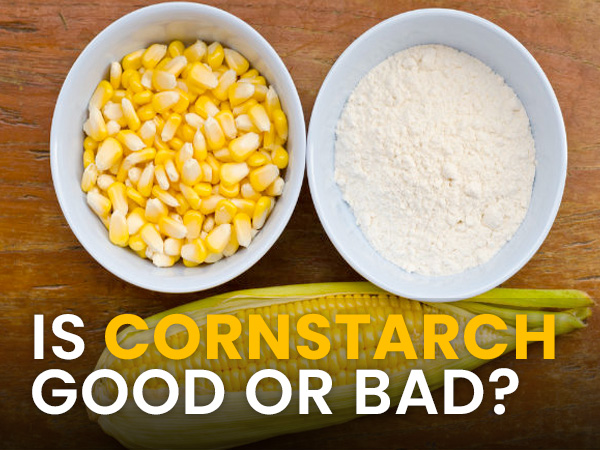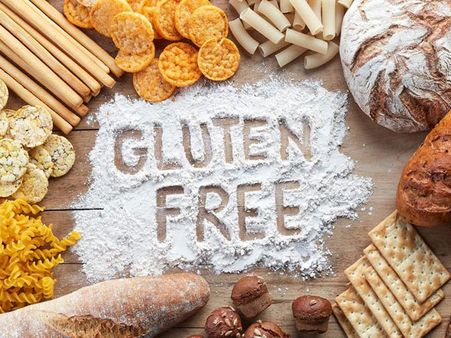Just In
- 1 hr ago

- 2 hrs ago

- 11 hrs ago

- 11 hrs ago

Don't Miss
- Sports
 Jos Buttler Channels Inner MS Dhoni, Virat Kohli to Lead Rajasthan Royals in Record-Breaking IPL 2024 Run Chase Against KKR
Jos Buttler Channels Inner MS Dhoni, Virat Kohli to Lead Rajasthan Royals in Record-Breaking IPL 2024 Run Chase Against KKR - Finance
 Rs 7/Share Dividend: May 3 Fixed As Record Date; Buy The Large Cap Stock To Be Eligible?
Rs 7/Share Dividend: May 3 Fixed As Record Date; Buy The Large Cap Stock To Be Eligible? - Movies
 Bade Miyan Chote Miyan Vs Maidaan Box Office Collection Day 6: Akshay Kumar BEATS Ajay Devgn. Margin Is...
Bade Miyan Chote Miyan Vs Maidaan Box Office Collection Day 6: Akshay Kumar BEATS Ajay Devgn. Margin Is... - News
 UAE Weather Report: Floods Hit Dubai, 18 Dead; Govt. Shuts Schools, Colleges
UAE Weather Report: Floods Hit Dubai, 18 Dead; Govt. Shuts Schools, Colleges - Education
 UPSC Success Story: An IITian, A Government Job Holder at Railways, Quit the Job and Emerged as an IAS
UPSC Success Story: An IITian, A Government Job Holder at Railways, Quit the Job and Emerged as an IAS - Automobiles
 Jeep Compass Gets More Powerful 268.3bhp Turbo Petrol Engine – Check Out All The Details Here
Jeep Compass Gets More Powerful 268.3bhp Turbo Petrol Engine – Check Out All The Details Here - Technology
 Redmi Pad SE With 90Hz Display Launching on April 23 in India; Could Be Priced for Less Than Rs 20,000
Redmi Pad SE With 90Hz Display Launching on April 23 in India; Could Be Priced for Less Than Rs 20,000 - Travel
 From Coconut Breaking on Head to Men Dressing as Women: 12 Unique Indian Rituals Explored
From Coconut Breaking on Head to Men Dressing as Women: 12 Unique Indian Rituals Explored
Cornstarch: Possible Health Benefits, Downsides And Uses
Cornstarch is a food product obtained by grinding corn kernels into a fine powder. It is a common ingredient used in culinary to thicken, stabilise and blend food items like curries, soups, sauces and stews. Cornstarch is also a popular product in baking and fried foods to add crispness and softness.

This foodstuff contains an adequate amount of vitamins and minerals but is also high in carbs and calories. Cornstarch always confuses people about its healthful nature. Some people consider it a healthier option while others avoid its use.
In this article, we will discuss cornstarch, its possible benefits, nutrition, downsides and many others. This will help you decide better whether it can be a healthier option for you or not. Take a look.
Nutritional Profile Of Cornstarch
100 g of cornstarch contains 8.32 g of water and 381 kcal of energy. It also contains

Note: All values are taken from the United States Department of Agriculture (USDA).
Possible Benefits Of Cornstarch
Cornstarch is a highly processed food item. The nutritious portion in corns i.e. bran and germ are mainly removed from the corn kernels to produce cornstarch. This makes it flavourless and low in essential nutrients like fibre. However, the content of carbs and calories remain intact. This is why the benefits of cornstarch are limited.

.
1. It is gluten-free
Gluten sensitivity is an autoimmune disorder in which a person is sensitive to gluten found in dietary sources like wheat, cereals and barley. As corn is gluten-free, cornstarch obtained is also free of gluten, which makes for a good option for people with celiac diseases or gluten sensitivity. Caution, double-check the gluten count while buying market-based cornstarch as some may contain lower amounts of it. [1]
2. Provides instant energy
When cornstarch is processed, the fibre in them is removed or reduced to obtain a fine powder. With low fibre content, cornstarch easily gets digested by the body providing instant energy. Also, carbs in them fuel your body at a faster rate and provide you with energy.
3. Helps with weight gain
Cornstarch is high in carbohydrates and calories that add to weight gain. One cup (128 g) of cornstarch contains 488 kcal of energy. Therefore, regular consumption of this food item can lead to increased weight. Though cornstarch is safe for weight gain, it shouldn't be consumed every day as it may increase diabetes risk. [2]


Downsides Of Cornstarch
1. May spike glucose levels
The high carbs, calories and glycemic index of cornstarch can spike glucose levels in the body and increase the risk of diabetes. If you are already a diabetic, it may worsen the symptoms. Also, the low fibre count in the food can process it at a faster rate, thus raising the sugar levels instantly.
2. May cause nutritional deficiency
The lack of many vital nutrients in cornstarch due to high processing can cause nutritional deficiency if not accompanied by other nutrient-dense foods. Therefore, to ensure a well-balanced diet, combine cornstarch with some fibre-rich or low glycemic index foods.
3. May cause heart diseases
Cornstarch is refined carbs which may increase the risk of heart diseases by 10-20 per cent if consumed in large amounts. Also, a high proportion of calories can lead to diabetes-related heart diseases. [3]


Culinary Use Of Cornstarch
- Cornstarch is mixed with vegetable oils to create a stabilizer for sauces, salad dressings, beverages and ice creams.
- It is used as a thickening agent in culinary as it forms a gel-like transparent by binding the solution.
- It makes for a great coating for fried and baked food items.
- Cornstarch is used as an anti-caking agent to prevent the formation of lumps, especially during the preparation of cake and pastries batter.


Topical Use of Cornstarch
- It is used in the management of the athlete's foot or treats diabetes-related foot infections.
- It helps treat skin itching and allergies caused due to various conditions such as thyroid problems. Use cornstarch by adding it to your bathtub and soaking for at least 15-20 minutes.
- It is added to many talcum powders and deodorants as it helps soak moisture effectively.
- It can be applied on bug bites to prevent itchiness.
- It is also added to talcum powder for infants to reduce diaper rashes.


How Much To Consume
Cornstarch is enjoyed mainly in moderation, around 1-2 tablespoons, which equals 8-15 gms. It can also be swapped by some of its healthy substitutes such as potato starch, rice flour, guar gum, cassava flour and arrowroot flour.
To Conclude
Cornstarch may not be a good option for diabetics or people with cardiovascular diseases but can be a good option for healthy adults due to its versatility in culinary and topical uses.

Common FAQs
1. Is modified corn starch bad for your health?
Modified cornstarch, especially high-amylose cornstarch has many health benefits. It helps with digestion, prevents sudden glucose spike and increases satiety. In natural cornstarch, the amylose content is less but in modified form, its proportion is increased industrially.
2. What is a healthy substitute for cornstarch?
There are many healthy substitutes for cornstarch such as ground flaxseeds, arrowroot powder, potato starch and rice flour. These products are also powdered finely and used for culinary purposes similar to cornstarch.
3. Is corn starch inflammatory?
Cornstarch, when consumed in high amount can cause inflammation. For example, cornstarch tends to spike glucose levels and increase the risk of diabetes, which is an inflammatory condition.
-
 recipesAkki Rotti Recipe: Karnataka Style Akki Rotti Recipe
recipesAkki Rotti Recipe: Karnataka Style Akki Rotti Recipe -
 wellness15 Home Remedies To Stop Bleeding Quickly
wellness15 Home Remedies To Stop Bleeding Quickly -
 wellness12 Foods To Avoid In Diabetes
wellness12 Foods To Avoid In Diabetes -
 wellnessHealth Benefits Of Tea For Diabetes: Safe Quantity And Side Effects
wellnessHealth Benefits Of Tea For Diabetes: Safe Quantity And Side Effects -
 diabetesWhat is Diabetes Skin Patch and How It Works
diabetesWhat is Diabetes Skin Patch and How It Works -
 disorders cureCut On Carbs For A Healthy Heart
disorders cureCut On Carbs For A Healthy Heart -
 healthIs Your Disturbed Sleep Schedule Making You Gain Weight?
healthIs Your Disturbed Sleep Schedule Making You Gain Weight? -
 healthWeight Loss: 4 Habits That Make You Gain Weight And Not Burn Fat
healthWeight Loss: 4 Habits That Make You Gain Weight And Not Burn Fat -
 healthThis Popular Comfort Food May Not Be That Comforting After All And Cause Weight Gain!
healthThis Popular Comfort Food May Not Be That Comforting After All And Cause Weight Gain! -
 healthPrevent Unhealthy Weight Gain With These 5 Weight Loss Promoting Habits
healthPrevent Unhealthy Weight Gain With These 5 Weight Loss Promoting Habits -
 wellnessWeight Gain During Menstruation: What Are The Causes? Is It Normal?
wellnessWeight Gain During Menstruation: What Are The Causes? Is It Normal? -
 diet fitnessThree Factors That Contribute To Weight Gain: Do You Have Any Of Them?
diet fitnessThree Factors That Contribute To Weight Gain: Do You Have Any Of Them?


 Click it and Unblock the Notifications
Click it and Unblock the Notifications




